
Salalah: The Jewel of Oman
Nestled in the southern part of Oman, Salalah is a city that offers a unique blend of natural beauty, rich history, and cultural charm. Known for its lush landscapes and cool climate, especially during the Khareef season, Salalah transforms into a green paradise that contrasts sharply with the arid surroundings typical of the Arabian Peninsula. Salalah is famous for its stunning coastline, featuring pristine beaches and crystal-clear waters. The city’s Al Haffa Beach is a must-visit, where you can relax under the shade of coconut trees and enjoy the refreshing sea breeze. For history enthusiasts, the ancient ruins of Sumhuram and the UNESCO World Heritage Site of Al Baleed Archaeological Park provide a fascinating glimpse into the region’s past. The city is also known for its vibrant markets, or souks, where you can immerse yourself in the local culture. The Al Husn Souk is particularly renowned for its frankincense, a fragrant resin that has been prized for centuries. Visitors can also explore the lush greenery of Wadi Darbat, where waterfalls and natural springs create a serene environment perfect for picnicking and hiking. Salalah’s unique climate, diverse attractions, and warm hospitality make it a captivating destination for travelers seeking both relaxation and adventure.
Local tips in Salalah
- Visit during the Khareef season (June to September) to experience the city’s lush greenery and cooler climate.
- Rent a car to explore the surrounding areas, as public transportation options are limited.
- Don’t miss the Al Husn Souk for authentic frankincense and other local goods.
- Carry light jackets or sweaters, as evenings can get surprisingly cool during the Khareef season.
- Try the local cuisine, particularly the seafood, which is a specialty in this coastal city.
Salalah: The Jewel of Oman
Nestled in the southern part of Oman, Salalah is a city that offers a unique blend of natural beauty, rich history, and cultural charm. Known for its lush landscapes and cool climate, especially during the Khareef season, Salalah transforms into a green paradise that contrasts sharply with the arid surroundings typical of the Arabian Peninsula. Salalah is famous for its stunning coastline, featuring pristine beaches and crystal-clear waters. The city’s Al Haffa Beach is a must-visit, where you can relax under the shade of coconut trees and enjoy the refreshing sea breeze. For history enthusiasts, the ancient ruins of Sumhuram and the UNESCO World Heritage Site of Al Baleed Archaeological Park provide a fascinating glimpse into the region’s past. The city is also known for its vibrant markets, or souks, where you can immerse yourself in the local culture. The Al Husn Souk is particularly renowned for its frankincense, a fragrant resin that has been prized for centuries. Visitors can also explore the lush greenery of Wadi Darbat, where waterfalls and natural springs create a serene environment perfect for picnicking and hiking. Salalah’s unique climate, diverse attractions, and warm hospitality make it a captivating destination for travelers seeking both relaxation and adventure.
When is the best time to go to Salalah?
Iconic landmarks you can’t miss
Sultan Qaboos Mosque Salalah
Explore the architectural marvel of Sultan Qaboos Mosque in Salalah, a harmonious blend of culture, faith, and artistry amidst a serene landscape.
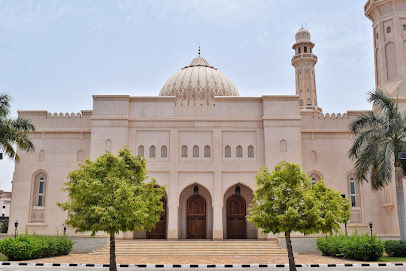
Ain Razat
Experience the natural beauty and tranquility of Ain Razat, a must-visit tourist attraction in Salalah, Oman, surrounded by lush greenery and refreshing springs.
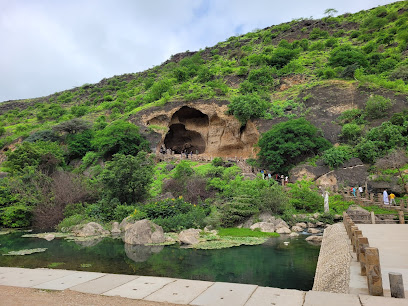
Salalah Central Market
Explore the lively Salalah Central Market, a vibrant hub of local culture and commerce in Oman, perfect for shopping and cultural immersion.
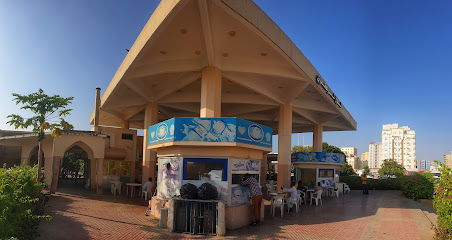
Salalah Gardens Mall
Explore Salalah Gardens Mall: a shopping paradise with diverse brands, delicious dining, and family-friendly entertainment in the heart of Salalah.
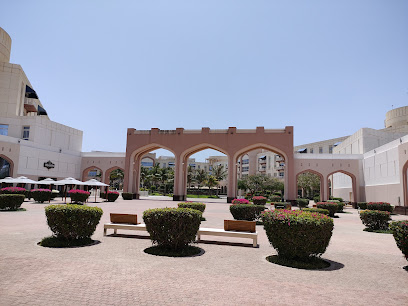
Dhareez beach
Discover the tranquility of Dhareez Beach in Salalah, Oman, where golden sands meet azure waters, perfect for relaxation and family fun.
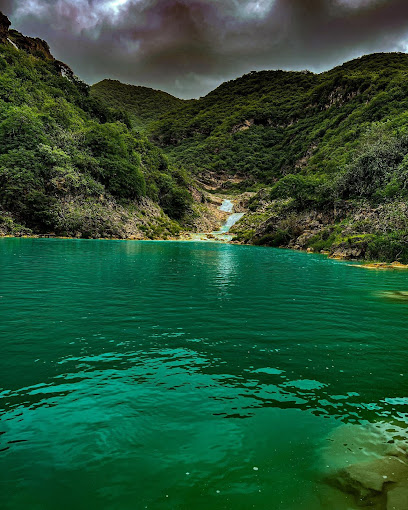
Ayn Athum Waterfalls
Experience the breathtaking beauty of Ayn Athum Waterfalls in Taqah, Oman, a hidden gem perfect for nature lovers and adventure seekers.
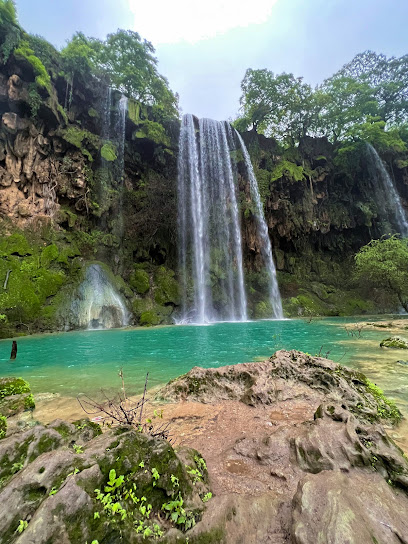
Al Baleed Resort Salalah by Anantara
Unwind in luxury at Al Baleed Resort Salalah, where Arabian hospitality meets stunning ocean views and cultural richness.

Ain Sahlounout
Explore the tranquil oasis of Ain Sahlounout in Salalah, where lush landscapes and serene waters create a haven for nature enthusiasts and adventurers.
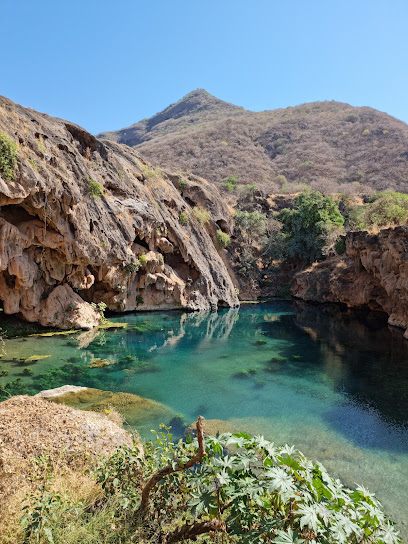
سهل أتين
Explore the breathtaking beauty of Sahl Ateen in Salalah, Oman—a paradise for nature lovers with lush landscapes and serene waterfalls waiting to be discovered.
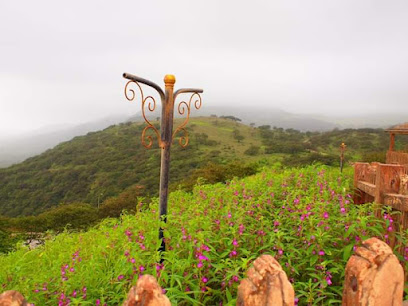
Ayn Korr
Discover the lush landscapes and serene waterfalls of Ayn Korr, an idyllic nature preserve in Salalah, Oman's natural paradise.
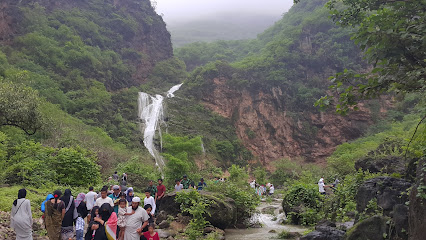
The Museum of the Frankincense Land
Explore the rich history of Oman at The Museum of the Frankincense Land in Salalah, where ancient trade routes come to life through captivating exhibits.
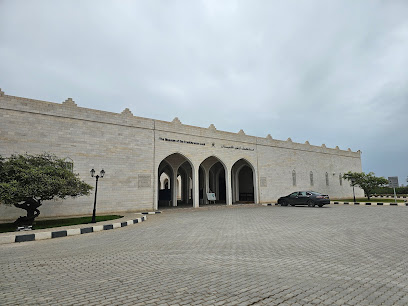
Samharam Resorts Salalah
Experience luxury and natural beauty at Samharam Resorts Salalah, your perfect retreat in the enchanting Dhofar region of Oman.
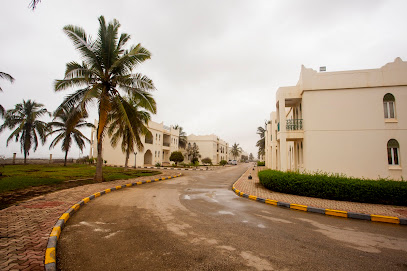
Coconut And Banana Shops
Explore the vibrant Coconut and Banana Shops in Salalah, where fresh tropical fruits meet the heart of Oman's local culture.
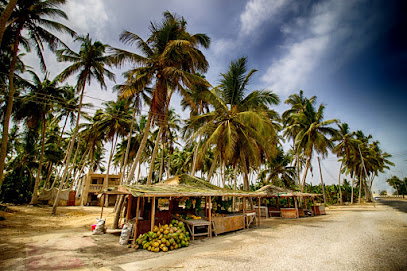
Al Baleed Archeological Park
Discover the beauty and history of Al Baleed Archaeological Park, a UNESCO World Heritage Site in Salalah, Oman, where ancient trade routes come to life.
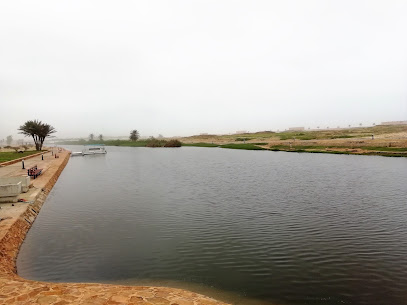
Ethin Salalah
Explore Ethin Salalah: A breathtaking tourist attraction in Oman, where stunning landscapes meet rich cultural experiences.
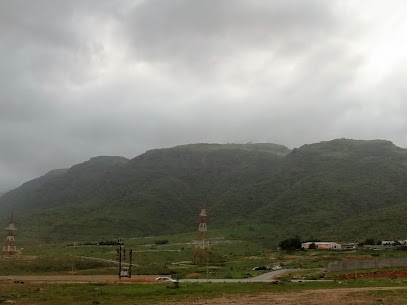
Unmissable attractions to see
Sultan Qaboos Mosque Salalah
Explore the architectural beauty and spiritual significance of Sultan Qaboos Mosque in Salalah, a must-visit for all travelers seeking cultural enrichment.
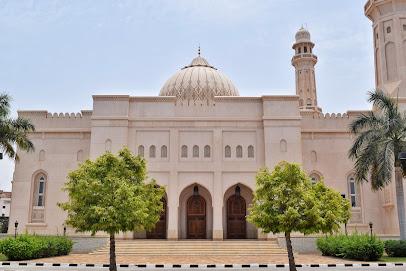
Wadi Darbat
Discover Wadi Darbat: A stunning oasis in Oman with breathtaking landscapes, serene waters, and rich biodiversity, perfect for nature lovers and adventure seekers.
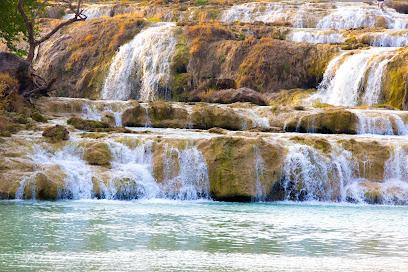
Dhareez beach
Discover the breathtaking beauty of Dhareez Beach in Salalah, Oman, where golden sands meet azure waters for the ultimate coastal getaway.
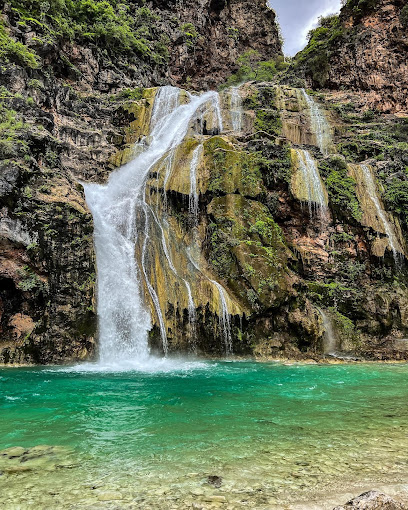
Ain Sahlounout
Experience the tranquility and beauty of Ain Sahlounout, a stunning waterfall in Salalah, Oman, perfect for nature lovers and adventure seekers.
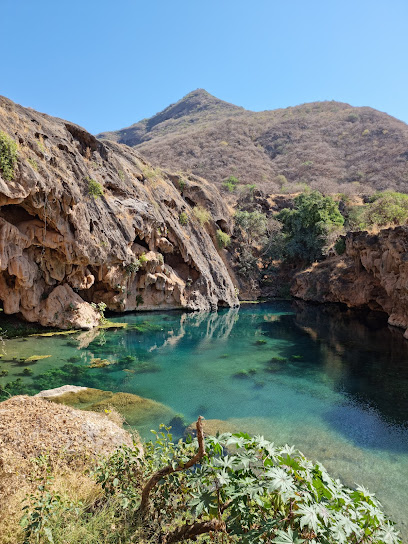
سهل أتين
Discover the stunning Ateen Valley in Salalah, where lush landscapes meet rich Omani culture, perfect for nature lovers and adventure seekers alike.
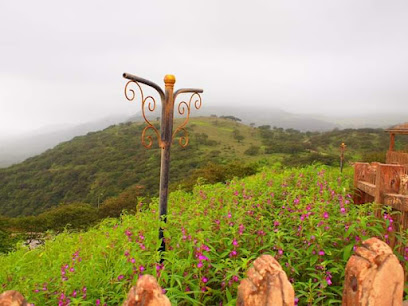
Hawana Aqua Park
Experience the ultimate fun at Hawana Aqua Park in Taqah, Oman, where thrilling water rides meet stunning sea views for a perfect family day out.
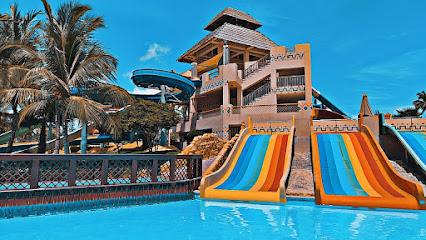
Ayn Korr
Explore the tranquility of Ayn Korr, a stunning nature preserve in Salalah, Oman, perfect for adventure seekers and nature enthusiasts alike.
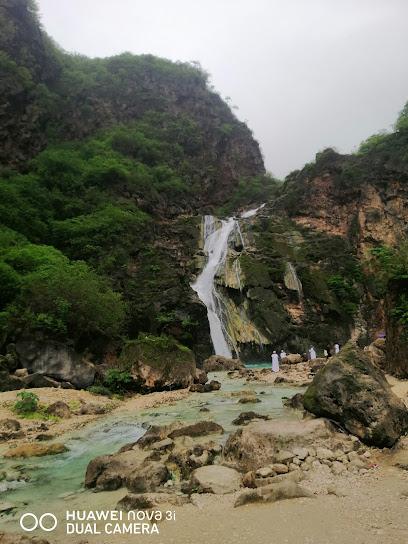
Salalah Public Park
Experience the lush landscapes and tranquil atmosphere of Salalah Public Park, a perfect escape for relaxation and family fun in Oman.
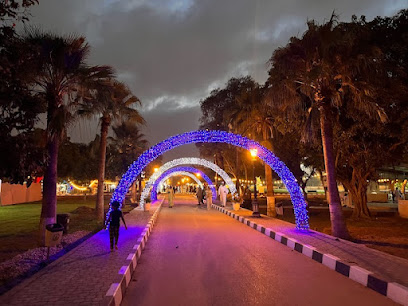
Museum of the Frankincense Land
Explore the rich history of Oman at the Museum of the Frankincense Land in Salalah, where the ancient trade of frankincense comes to life through captivating exhibits.
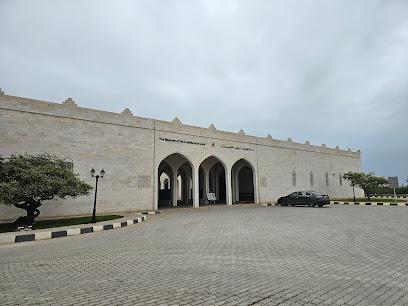
Taqah Castle
Discover Taqah Castle, an archaeological wonder in Oman, where history, architecture, and stunning views come together for an unforgettable experience.
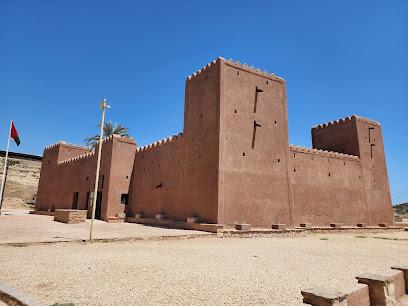
As Saadah Park
Discover the serenity of As Saadah Park in Salalah, a perfect escape for nature lovers and families seeking relaxation amidst stunning landscapes.
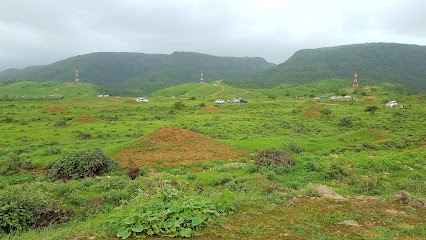
Ain Garziz
Discover the serene beauty of Ain Garziz in Salalah, a natural spring surrounded by lush greenery and stunning landscapes.
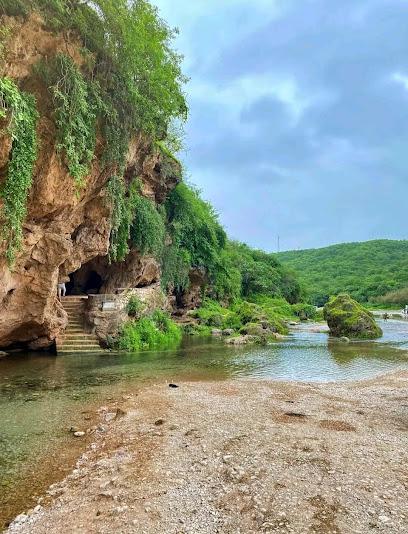
Al Baleed Archeological Park
Discover Al Baleed Archeological Park in Salalah, a UNESCO World Heritage Site showcasing the ancient maritime history of Oman.
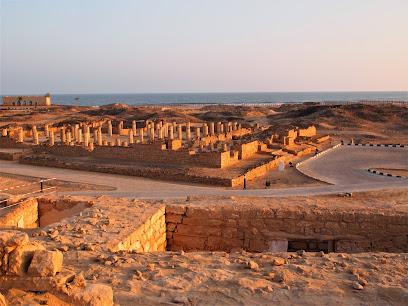
Nabi Imran Tomb
Explore the serene Nabi Imran Tomb in Salalah, an important religious site that blends spirituality with Oman's rich cultural heritage.
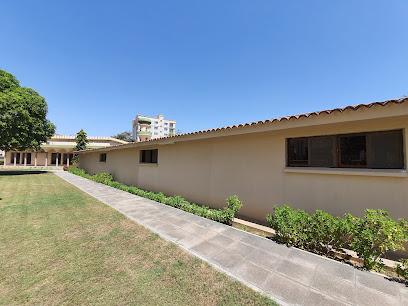
Ethin Salalah
Discover the breathtaking landscapes and unique climate of Ethin, a must-visit tourist attraction in Salalah, Oman, ideal for nature lovers.
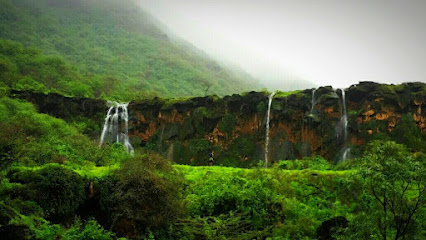
Essential places to dine
Al Qadri Restaurant
Discover Al Qadri Restaurant in Salalah - where authentic Omani flavors meet warm hospitality in an inviting atmosphere.
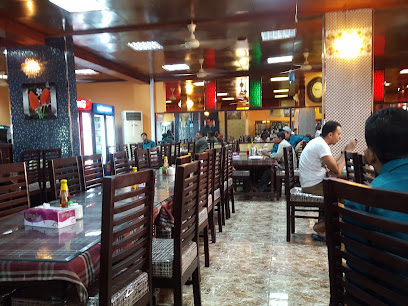
Udupi Vegetarian Restaurant
Discover authentic South Indian vegetarian cuisine at Udupi Vegetarian Restaurant in Salalah - where tradition meets taste.
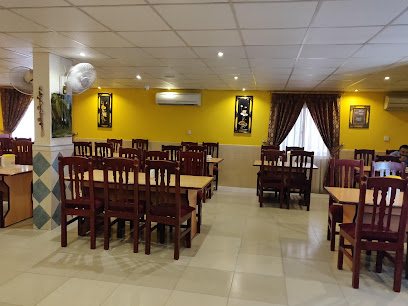
Baalbeck Lebanese Restaurant
Savor authentic Lebanese cuisine at Baalbeck Lebanese Restaurant in Salalah - a must-visit for every food enthusiast.
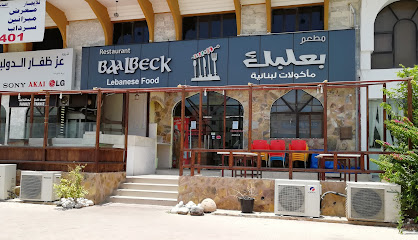
Ayal Alfareej Restaurant
Experience authentic Omani cuisine at Ayal Alfareej Restaurant in Salalah - where every meal tells a story.
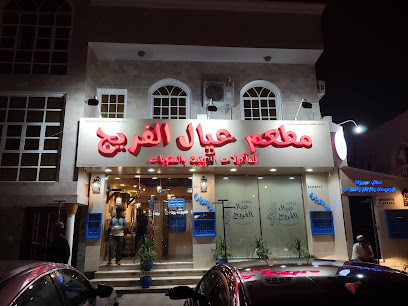
Annapurna Restaurant
Discover authentic Indian cuisine at Annapurna Restaurant in Salalah - where every dish tells a story of rich flavors and tradition.
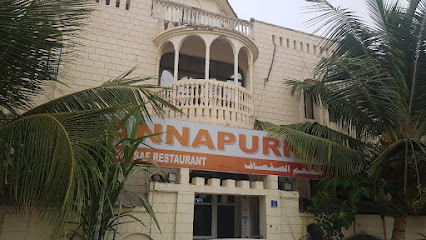
Marmara Al Turkey restaurant
Experience authentic Turkish and continental cuisine at Marmara Al Turkey Restaurant in Salalah—where flavor meets tradition.
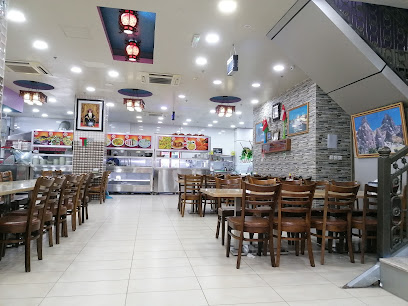
TOPAZ RESTAURANT SALALAH
Discover a delightful fusion of Indian and Chinese cuisines at Topaz Restaurant in Salalah – where every meal is a flavorful journey.
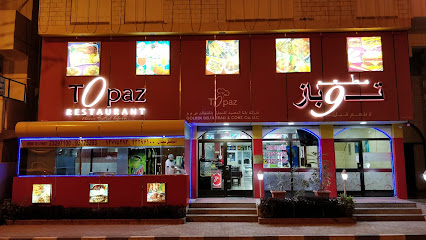
L’AVENUE Park
Experience exceptional dining at L’AVENUE Park in Salalah – where delightful flavors meet beautiful natural surroundings.
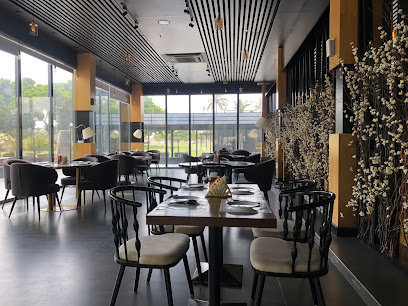
al Ghad restaurant
Experience authentic Omani cuisine at al Ghad Restaurant in Salalah - a must-visit culinary gem offering rich flavors and warm hospitality.
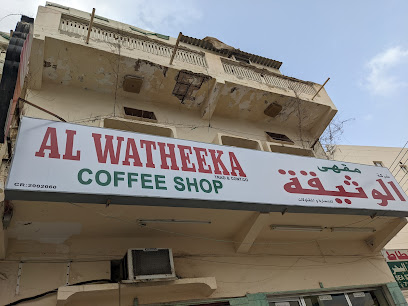
Al Khabeer Turkish Sweets & Restaurant
Experience authentic Turkish cuisine at Al Khabeer in Salalah - where every dish tells a delicious story.
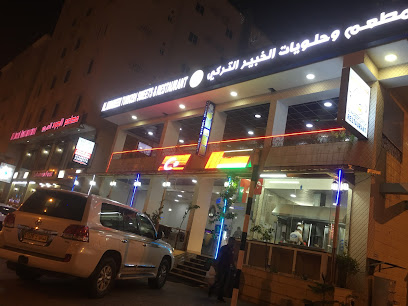
The Cascade
Discover authentic Indian flavors at The Cascade in Salalah - where every dish tells a story.
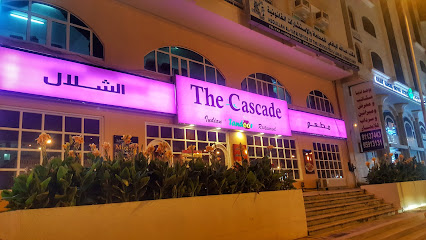
Rajbhog Restaurant
Experience authentic vegetarian Indian cuisine at Rajbhog Restaurant in Salalah - where flavor meets tradition.
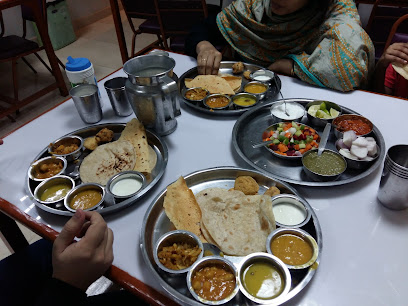
Tely Restaurant
Discover delicious Omani cuisine at Tely Restaurant in Salalah—affordable dining with authentic flavors!
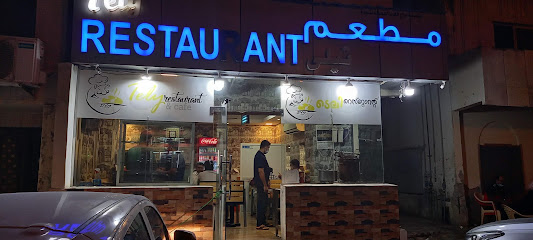
Silver Diamond Restaurant (since 2004)
Experience the essence of Indian cuisine at Silver Diamond Restaurant in Salalah – where every dish tells a story.
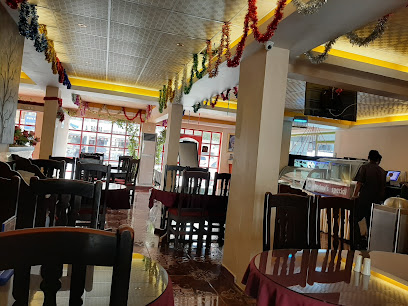
Al Kutaini Restaurant
Experience authentic Omani cuisine at Al Kutaini Restaurant in Salalah - where traditional flavors meet warm hospitality.
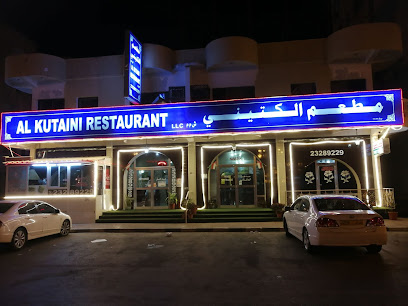
Markets, malls and hidden boutiques
LuLu Hypermarket - Salalah
Experience diverse shopping at LuLu Hypermarket in Salalah, where quality meets variety in a vibrant atmosphere.
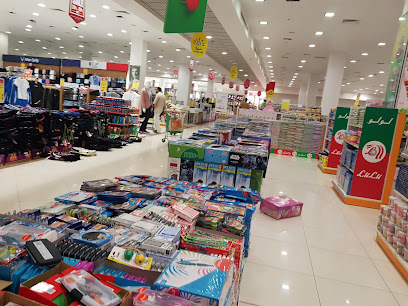
Salalah Gardens Mall
Experience shopping, dining, and entertainment at Salalah Gardens Mall, a premier destination in Oman’s picturesque city of Salalah.
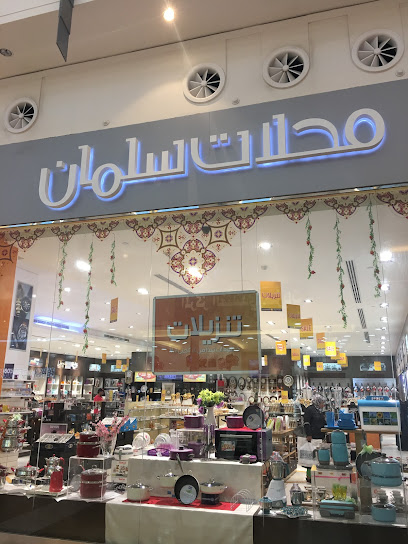
LuLu Hypermarket - AR - Salalah
Shop at LuLu Hypermarket in Salalah for a diverse selection of groceries, fashion, and electronics amidst a vibrant shopping atmosphere.
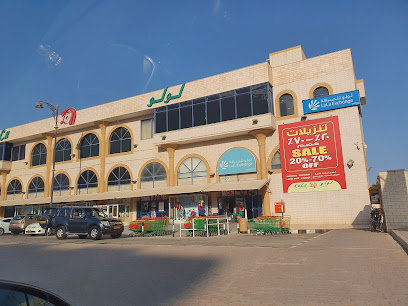
Salalah Grand Mall
Explore Salalah Grand Mall - A Shopping Haven with Local Flair and Global Brands in the Heart of Oman.
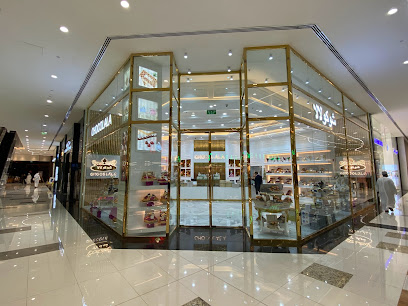
Oasis Mall
Explore Oasis Mall in Salalah for a diverse shopping experience with local and international brands, dining, and entertainment options.
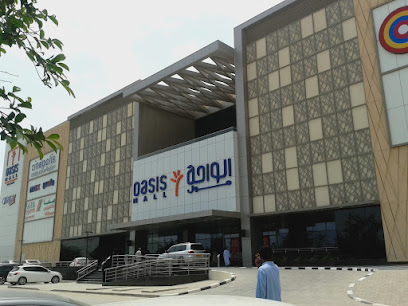
LuLu Hypermarket, Salalah Grand Mall
Experience the ultimate shopping destination at LuLu Hypermarket in Salalah Grand Mall, offering a diverse range of products from groceries to fashion.
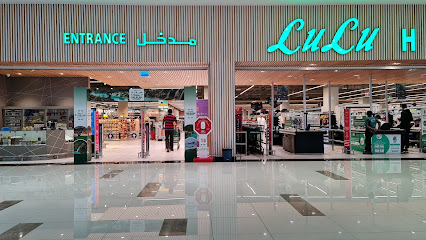
Sun Mart
Explore Sun Mart in Salalah, Oman—your ultimate shopping destination with diverse shops, delicious dining, and family-friendly entertainment.
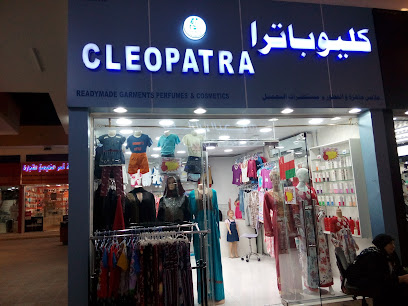
Souq Al hafa
Immerse yourself in the rich culture and vibrant atmosphere of Souq Al Hafa, Salalah's charming marketplace for unique handicrafts and delicious local cuisine.
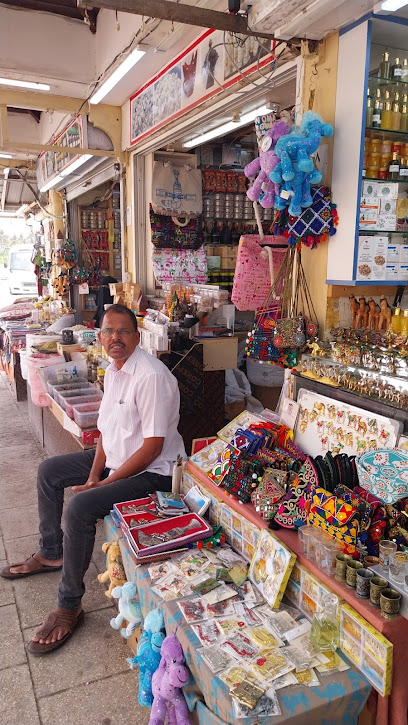
Chinese Village
Discover the charm of Chinese Village in Salalah, where cultural heritage meets modern shopping experiences in a vibrant atmosphere.
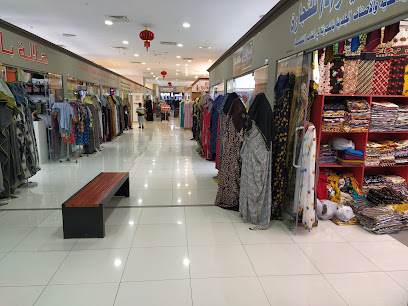
Modest Gift Shop
Explore Modest Gift Shop in Salalah for authentic souvenirs, swimwear, and unique local crafts, capturing the essence of Oman.
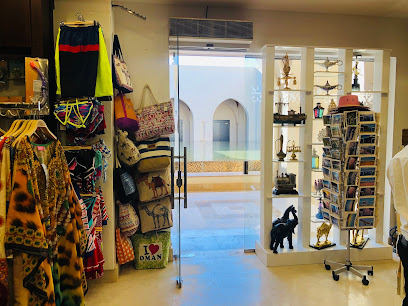
Muscat Furniture - مفروشات مسقط
Explore Muscat Furniture in Salalah for exquisite home furnishings that blend traditional craftsmanship with modern design, perfect for every taste.
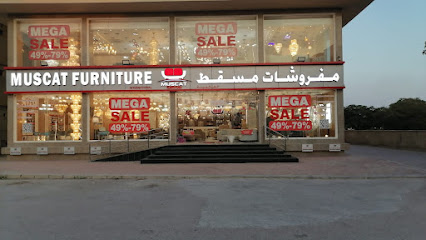
MAJAN BEACHES TOBACCO SHOP
Discover the authentic Omani tobacco experience at Majan Beaches Tobacco Shop in Salalah, where quality meets tradition.
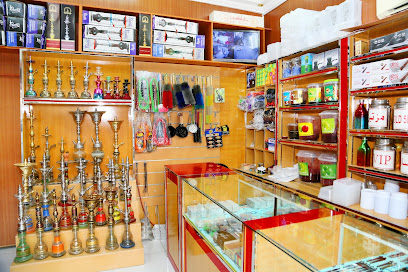
Salalah Gallery (Alawadi Gifts & Perfumes)
Discover the essence of Oman at Salalah Gallery, where exquisite perfumes and traditional gifts await in the heart of Salalah's Municipal Market.
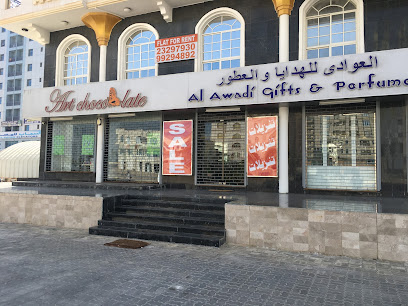
MEGASTORE FOR COMPUTERS AND ELECTRONICS
Discover the ultimate shopping experience for computers and electronics at MEGASTORE in Salalah, Oman—your tech paradise awaits.
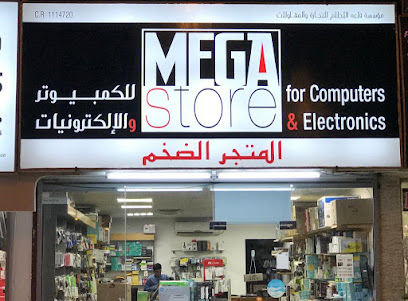
Dhofari Perfumes Center
Explore the essence of Omani culture at Dhofari Perfumes Center, where traditional perfumery meets modern elegance in Salalah.
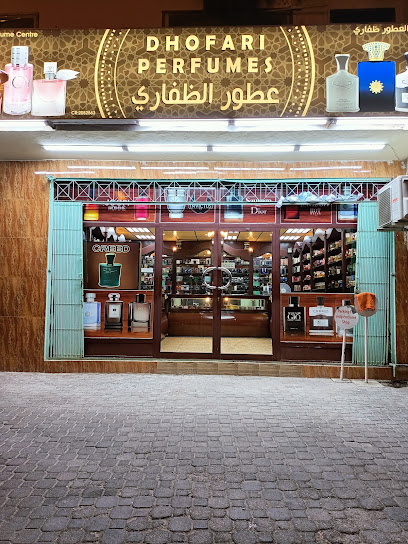
Essential bars & hidden hideouts
L’AVENUE Park
Discover the enchanting L’AVENUE Park in Salalah, where culinary delights meet serene park surroundings for an unforgettable dining experience.
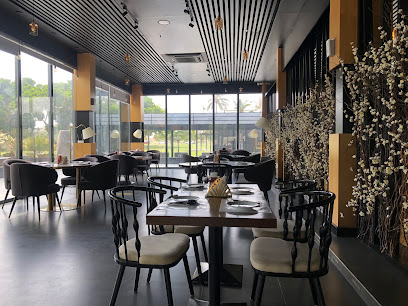
Ocean Blue Beach House
Discover a culinary oasis at Ocean Blue Beach House, where exquisite flavors meet breathtaking ocean views in the heart of Salalah.
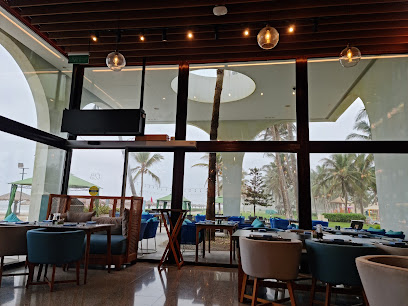
Al Mina Restaurant and Bar
Experience the flavors of the Mediterranean in a luxurious setting at Al Mina Restaurant and Bar in Salalah.
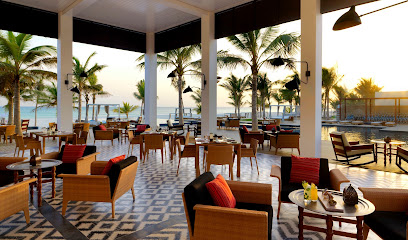
Hassan Bin Thabit Restaurant | The Best Restaurant in Salalah for Chinese and North Indian Cuisines.
Experience a delightful fusion of Chinese and North Indian cuisines at Hassan Bin Thabit Restaurant in Salalah, perfect for food lovers.
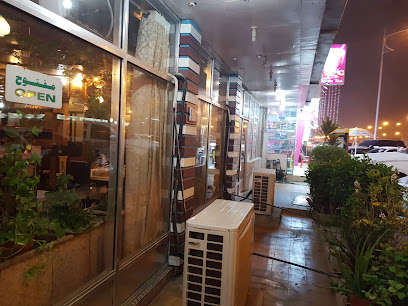
Dolphin Terrazza
Experience the exquisite flavors of Oman at Dolphin Terrazza, a beachfront dining gem in Salalah's Crowne Plaza Resort.
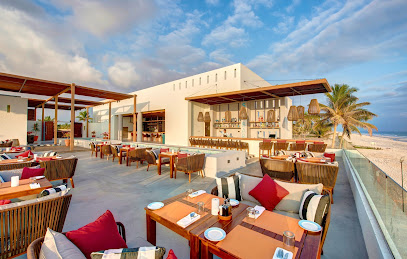
Whispers Night Club
Experience the vibrant nightlife of Salalah at Whispers Night Club, where unforgettable memories are made with electrifying music and dance.
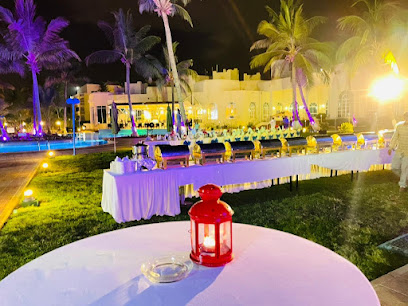
Zanzi bar
Experience the vibrant nightlife at Zanzi Bar in Salalah, where local flavors and a lively atmosphere create unforgettable memories.
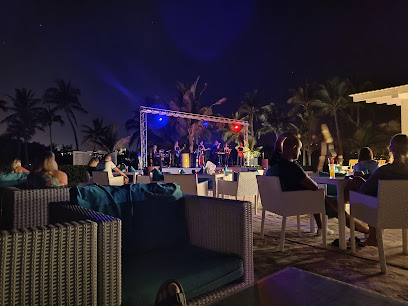
Al Khareef Pub
Discover Al Khareef Pub in Salalah: A lively spot offering an extensive drink selection and delicious snacks in a vibrant atmosphere.
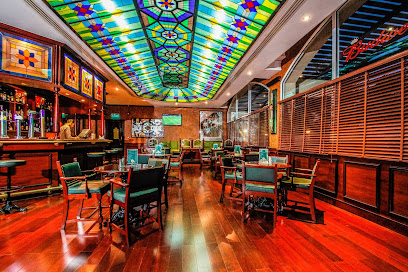
Cocos bar
Experience the vibrant atmosphere and refreshing drinks at Cocos Bar, a must-visit spot in Salalah for both locals and tourists.
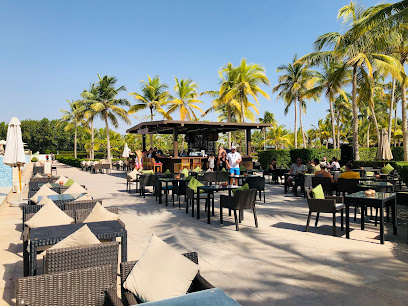
Coco Shack Beach Bar
Discover the vibrant ambiance of Coco Shack Beach Bar in Salalah, where tropical drinks meet stunning beach views for an unforgettable experience.
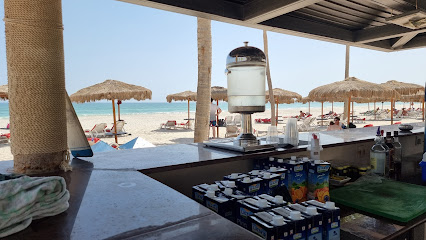
Skybar - Crowne plaza
Experience breathtaking views and exquisite cocktails at the Skybar - Crowne Plaza, the ultimate nightlife destination in Salalah.
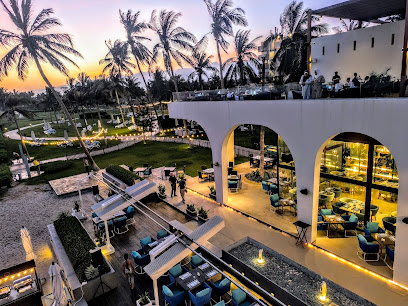
الحماية القصوى
Experience the vibrant nightlife at الحماية القصوى, Salalah's premier bar for drinks, music, and lively conversations.
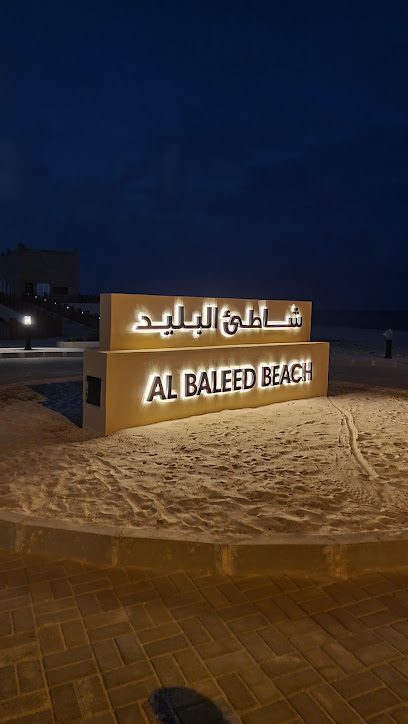
VIP Terminal
Discover the luxurious VIP Terminal in Salalah, where comfort and exceptional service create an unforgettable travel experience.
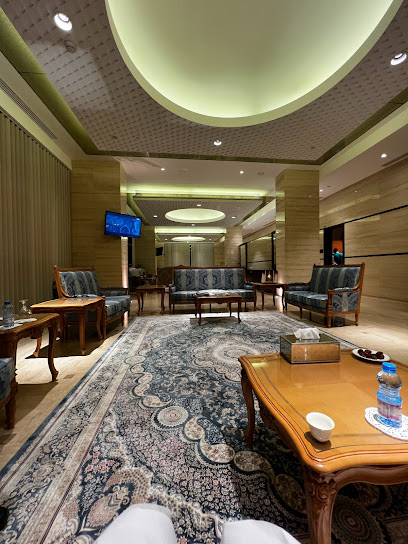
شرطة ظفار
Discover the lively atmosphere of شرطة ظفار in Salalah, a bar that blends local culture with modern nightlife for an unforgettable experience.

hossain molla {Pud}
Experience local flavors and vibrant atmosphere at Hossain Molla Pub in Salalah, a perfect blend of culture and cuisine for every traveler.

Local Phrases
-
- Helloمرحبا
[marhaba] - Goodbyeوداعا
[wada'an] - Yesنعم
[na'am] - Noلا
[la] - Please/You're welcomeمن فضلك / على الرحب والسعة
[min fadlik / 'ala al-rahb was-sa'ah] - Thank youشكرا
[shukran] - Excuse me/Sorryعذرا
['udhran] - How are you?كيف حالك؟
[kayf halik?] - Fine. And you?بخير. وأنت؟
[bikhayr. wa'ant?] - Do you speak English?هل تتحدث الإنجليزية؟
[hal tatahadath al-inglizia?] - I don't understandأنا لا أفهم
[ana la afham]
- Helloمرحبا
-
- I'd like to see the menu, pleaseأريد أن أرى القائمة، من فضلك
[urid 'an 'ara al-qaimah, min fadlik] - I don't eat meatأنا لا آكل اللحوم
[ana la akl al-lahm] - Cheers!في صحتك!
[fi sahtak!] - I would like to pay, pleaseأود أن أدفع، من فضلك
[awad 'an adfa', min fadlik]
- I'd like to see the menu, pleaseأريد أن أرى القائمة، من فضلك
-
- Help!النجدة!
[al-najdah!] - Go away!انصرف!
[insarif!] - Call the Police!اتصل بالشرطة!
[iatisal bialshurta!] - Call a doctor!اتصل بطبيب!
[iatisal bitabib!] - I'm lostلقد ضللت الطريق
[laqad dalalt al-tariq] - I'm illأنا مريض
[ana mareed]
- Help!النجدة!
-
- I'd like to buy...أريد أن أشتري...
[urid 'an ashtari...] - I'm just lookingأنا فقط أتفرج
[ana faqat atfarg] - How much is it?كم سعره؟
[kam si'ruh?] - That's too expensiveهذا غالي جدا
[hatha ghali jiddan] - Can you lower the price?هل يمكنك خفض السعر؟
[hal yumkinuk khafdh al-si'ar?]
- I'd like to buy...أريد أن أشتري...
-
- What time is it?كم الساعة؟
[kam al-sa'ah?] - It's one o'clockالواحدة
[al-wahidah] - Half past (10)العاشرة والنصف
[al-'ashirah wal-nisf] - Morningصباح
[sabah] - Afternoonبعد الظهر
[ba'd al-dhuhur] - Eveningمساء
[masa] - Yesterdayأمس
[ams] - Todayاليوم
[al-yawm] - Tomorrowغدا
[ghadan] - 1واحد
[wahid] - 2اثنان
[ithnan] - 3ثلاثة
[thalathah] - 4أربعة
[arba'ah] - 5خمسة
[khamsah] - 6ستة
[sittah] - 7سبعة
[sab'ah] - 8ثمانية
[thamaniah] - 9تسعة
[tis'ah] - 10عشرة
[asharah]
- What time is it?كم الساعة؟
-
- Where's a/the...?أين ال...؟
[ayn al...?] - What's the address?ما هو العنوان؟
[ma huwa al-‘unwan?] - Can you show me (on the map)?هل يمكنك أن تريني (على الخريطة)؟
[hal yumkinuk 'an turini (‘ala al-kharitah)?] - When's the next (bus)?متى القادم (الحافلة)؟
[mata al-qadim (al-hafila)?] - A ticket (to ....)تذكرة (إلى ....)
[tathkirah (‘iilaa ....)]
- Where's a/the...?أين ال...؟
History of Salalah
-
Salalah, known historically as a major hub in the ancient frankincense trade, was a significant center for the production and distribution of this valuable resin. The region's frankincense trees, Boswellia sacra, were highly prized, and caravans would transport this 'gift of the gods' to various parts of the ancient world, including Egypt, Rome, and Greece. The trade routes connected Salalah to a vast network of civilizations, making it a vital economic and cultural crossroads.
-
Before becoming known as Salalah, the area was referred to as Zafar. This ancient name is a testament to the region's historical significance. During the late classical era, Zafar was a flourishing port and commercial hub, with connections to the Hadhramaut, India, Persia, and Africa. Archaeological evidence suggests that the city was a thriving community with advanced infrastructure, including sophisticated irrigation systems known as aflaj.
-
The Al Busaid dynasty, which began in the mid-18th century, played a pivotal role in shaping the modern history of Salalah. Under the rule of Sultan Said bin Taimur, Salalah became the capital of the Dhofar region. The Sultan’s administration focused on building infrastructure, promoting agriculture, and establishing the foundations of modern governance in the region. His reign left an indelible mark on the cultural and political landscape of Salalah.
-
During World War II, Salalah gained strategic importance due to its location along the Arabian Sea. The British established a military presence in the area to secure their interests and monitor the Indian Ocean. This period saw the construction of an airstrip in Salalah, which later evolved into the modern Salalah Airport. The British influence also impacted local governance and infrastructure development, setting the stage for future growth.
-
From 1963 to 1976, the Dhofar region, including Salalah, was embroiled in a significant conflict known as the Dhofar Rebellion. This insurgency aimed to overthrow the Sultanate of Muscat and Oman and was fueled by Marxist ideologies and local grievances. The conflict saw intense fighting between rebel forces and the Sultan’s army, supported by British and Iranian troops. The rebellion's resolution led to extensive development initiatives and modernization efforts in Salalah and surrounding areas.
-
Salalah is renowned for its unique monsoon season, known locally as the Khareef. During the summer months, the region transforms into a verdant paradise with lush greenery and cool temperatures, attracting tourists from across the Arabian Peninsula. The Khareef Festival, held annually, celebrates this natural phenomenon with cultural events, traditional performances, and local cuisine. The festival highlights the rich cultural heritage of Salalah and its significance in the region’s tourism industry.
Salalah Essentials
-
Salalah is accessible via Salalah International Airport (SLL), which receives both international and domestic flights. Major airlines operate direct flights from cities like Muscat, Dubai, and Doha. Alternatively, you can reach Salalah by road from Muscat, a journey that spans roughly 1,000 kilometers and takes around 10-12 hours by car. Long-distance buses are also available for this route, providing a more economical option.
-
Within Salalah, transportation options include taxis, which are plentiful and relatively inexpensive. Make sure to agree on a fare before starting your journey. Car rentals are also available and can be a convenient way to explore the region at your own pace. Public buses operate within the city and to nearby towns, but schedules may be irregular. For a unique experience, consider renting a bicycle to explore the city and its scenic surroundings.
-
The official currency in Oman is the Omani Rial (OMR). Credit and debit cards are widely accepted in hotels, restaurants, and larger shops. However, it is advisable to carry some cash for smaller establishments and markets. ATMs are available throughout Salalah, and currency exchange services can be found at the airport and in major hotels.
-
Salalah is generally considered a safe city for tourists. However, it's always prudent to take standard safety precautions. Avoid walking alone in poorly lit areas at night and be aware of your surroundings. Petty crime, such as pickpocketing, can occur in crowded places, so keep your belongings secure. There are no specific high-crime areas targeting tourists, but it's always best to stay vigilant.
-
In case of emergency, dial 9999 for police, fire, or medical assistance. Salalah has several hospitals and clinics that offer emergency services. It is highly recommended to have travel insurance that covers medical emergencies. Pharmacies are available throughout the city for minor health issues and over-the-counter medications.
-
Fashion: Do dress modestly, particularly in public places and religious sites. Men and women should avoid wearing revealing clothing. Religion: Do respect local customs and traditions. Always remove your shoes before entering a mosque and dress conservatively. Public Transport: Do be respectful and give up your seat to elderly passengers. Greetings: Do greet people with a handshake, but be mindful that physical contact between genders is often avoided. Eating & Drinking: Do try local dishes and accept food offerings graciously. Don't eat or drink in public during the daytime in Ramadan, as it is considered disrespectful.
-
To experience Salalah like a local, visit the traditional souks, such as Al-Haffa Souk, where you can buy frankincense, spices, and traditional Omani crafts. Engage with locals who are generally warm and welcoming. Don't miss the annual Khareef Festival, which celebrates the monsoon season with cultural performances and events. For a taste of local cuisine, try shuwa, a traditional Omani dish of slow-cooked lamb.
Trending Landmark in Salalah
-
Sultan Qaboos Mosque Salalah
-
Ain Razat
-
Salalah Central Market
-
Salalah Gardens Mall
-
Dhareez beach
-
Ayn Athum Waterfalls
-
Al Baleed Resort Salalah by Anantara
-
Ain Sahlounout
-
سهل أتين
-
Ayn Korr
-
The Museum of the Frankincense Land
-
Samharam Resorts Salalah
-
Coconut And Banana Shops
-
Al Baleed Archeological Park
-
Ethin Salalah
Nearby Cities to Salalah
-
Things To Do in Mirbat
-
Things To Do in Ibri
-
Things To Do in Bahla
-
Things To Do in Nizwa
-
Things To Do in Rustaq
-
Things To Do in Al Ain
-
Things To Do in Abu Dhabi
-
Things To Do in Sur
-
Things To Do in Muscat
-
Things To Do in Sohar
-
Things To Do in Dubai
-
Things To Do in Mesaieed
-
Things To Do in Fujairah
-
Things To Do in Sharjah
-
Things To Do in Al Wakrah









